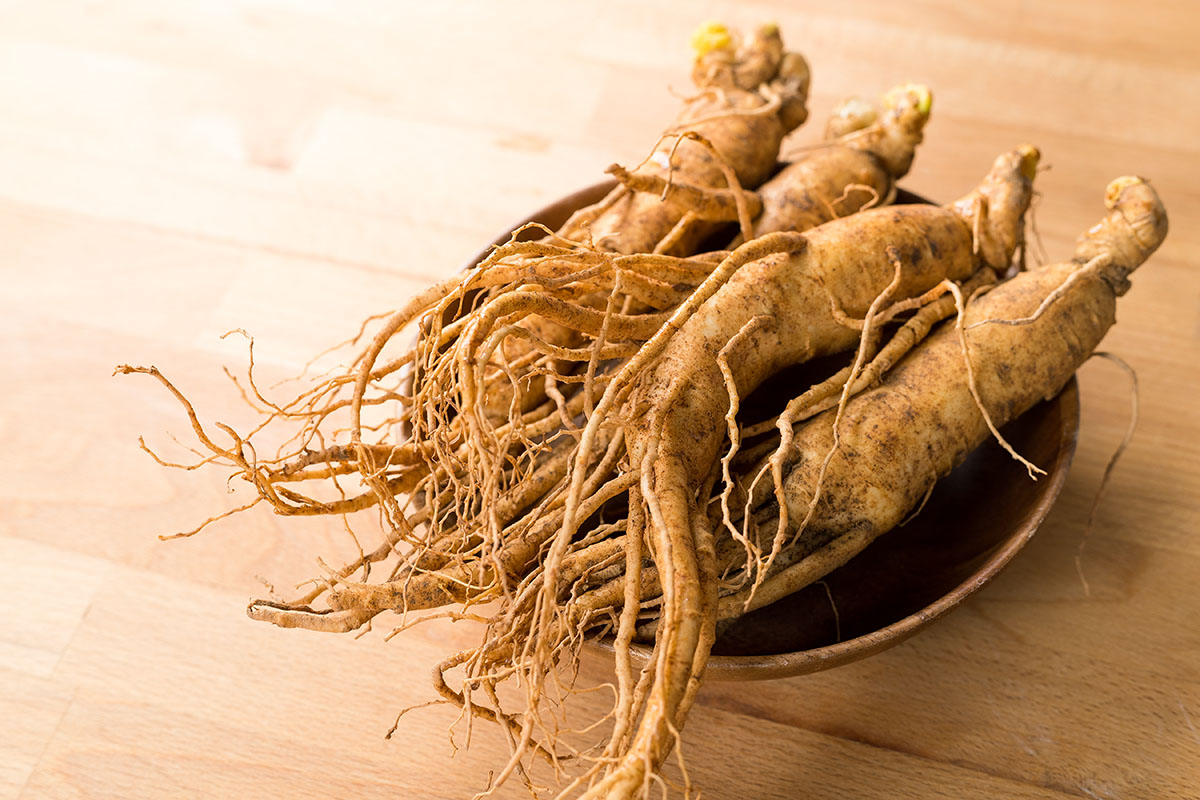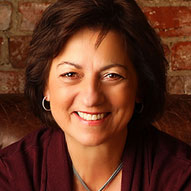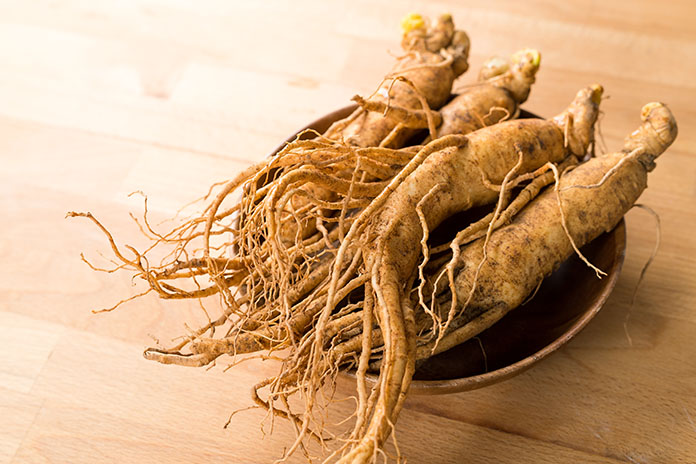
A number of herbs found in the Chinese formulary are well-known, such as licorice, ginger and turmeric. However, ginseng is the only one that’s not just familiar, but also can help boost your energy. And while it’s true that ginseng can help increase your energy, it offers much more than that. In fact, its botanical name, panax ginseng speaks to its ability to treat a number of conditions. The name panax comes from a combination of Greek words, pan, which means all, and axos referring to a curative substance, making panax ginseng an herb that is all-healing.
While it’s easy to think of ginseng as the answer to every medical problem, there’s a lot to know about this herb before you consider taking it:
1) Also known as Asian ginseng, panax ginseng is called Ren Shen in Chinese, which translates into man herb. That’s because the part that’s used—the root of the plant—looks like a small man. When used in Chinese medicine, Ren Shen is slightly warming and it strongly rebuilds and promotes energy, especially if you’ve been sick, had a significant loss of blood or have overextended yourself physically. Practitioners of Chinese medicine add it into herbal formulas to help support the health of your lungs, promote good digestion, boost your appetite, calm irritable bowels and treat prolapsed organs. Ren Shen is also used for heart issues such as palpitations, insomnia and anxiety.
2) Panax ginseng can be very expensive, both because of the demand for this herb and due to the scarcity of wild grown sources. Herbalists in China say that the finest Asian ginseng grows wild in the mountains, often coming from the Jilin province in China. Ginseng grown there is called wild mountain root, mountain root or Ji Len Shen.
3) Asian ginseng that is not grown in the wild is cultivated, and can come in a couple of forms. Cultivated ginseng is available fresh or dried, and it can also be cured into rock candy, called white root or sugar root, and tends to be less expensive than other kinds of ginseng. Cultivated and cured Ren Shen is often steamed during preparation, turning the root red. When it’s steamed, the ginseng becomes warmer energetically—meaning it helps to warm your body.
4) To further confuse the different kinds of ginseng, American ginseng root, called Xi Yang Shen is also used in Chinese medicine. American ginseng is grown in the northern United States and Canada. American ginseng is also used to rebuild or support energy, but in contrast to Asian ginseng, it’s a colder herb and is used to promote fluids and relieve dryness. Because of its cooling effects, American ginseng can be used in the recovery of a debilitating illness with a high fever, and it may be included in formulas to treat cough or inflammation of the lungs. Xi Yang Shen isn’t as strong as Ren Shen (Asian ginseng), but it has similar effects and can be a less costly alternative.
5) While not actually true ginseng, there is also an herb called Siberian ginseng, which doesn’t contain ginsenosides, which are the active compounds in Asian and American ginseng. Instead, Siberian ginseng is an herb called eleuthero that helps your body adapt to stress, supports immunity and helps to enhance your energy.
6) While not a cure all, research supports the fact that Asian ginseng benefits your health in several ways, including protection from memory loss, improved immunity, the treatment of chronic fatigue, the regulation of blood sugar which can reduce your risk of diabetes, and it’s useful in the treatment of low sex drive and erectile dysfunction. Scientists are also suggesting from early research that Asian ginseng may be helpful in the treatment of hay fever, Alzheimer’s disease, inflammation of the bronchia, COPD (Chronic Obstructive Pulmonary Disease) and heart failure. In the clinic, some doctors have found that ginseng helps patients recover more quickly from cancer treatments and that it may actually have cancer-fighting properties as well.
7) Scientists have also discovered that ginseng is packed with antioxidants. These are compounds that counter the effects of free radicals on your body that occur from both lifestyle and environmental stressors. Free radicals accelerate the aging process and increase your risk for a variety of health problems.
8) The ideal dose of ginseng is different for each person. It depends on the condition being treated, the size of the patient, their health history, overall body constitution and the type of ginseng being used. For that reason, it’s a really good idea to work with an acupuncture practitioner who is also a trained herbalist. Based on your specific symptoms and health, they can prescribe an herbal formula tailored with the correct dosages and herb combination for your needs.
If you want to know more about the benefits of ginseng or Chinese herbs in general, contact our clinic. We’re happy to answer any questions you may have.

Cindy Chamberlain is an acupuncturist in Overland Park, KS and the founder of Eastern Healing Solutions, LLC. She is licensed in Kansas and Missouri and has been practicing traditional Chinese medicine since 1996.


